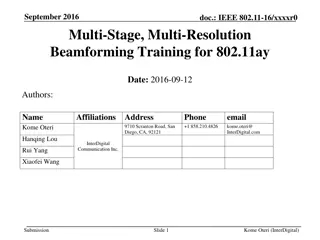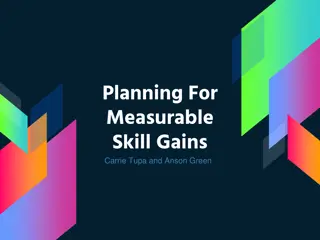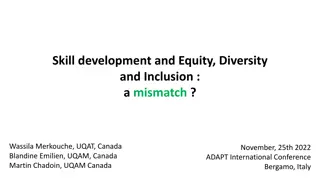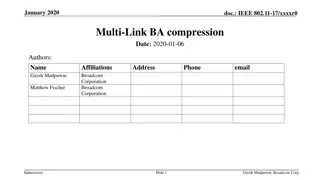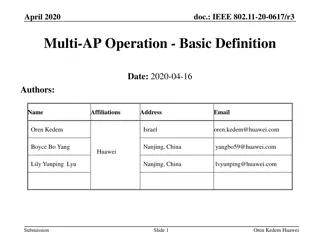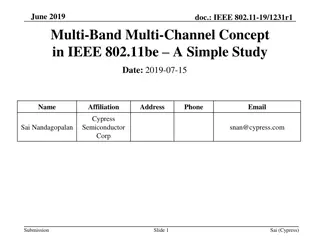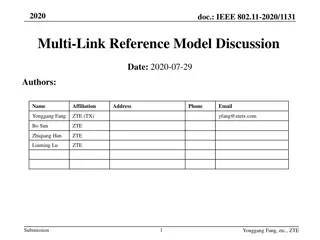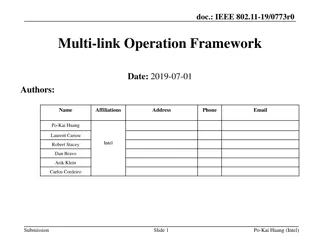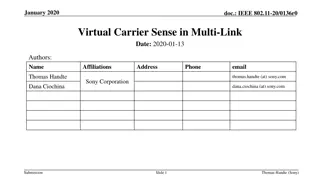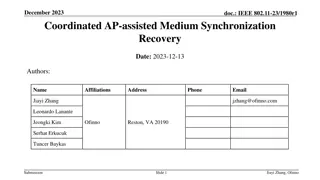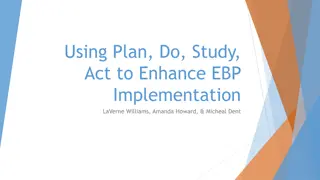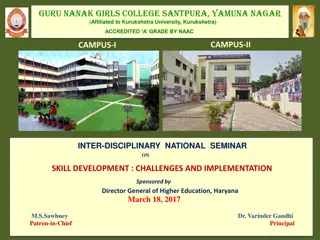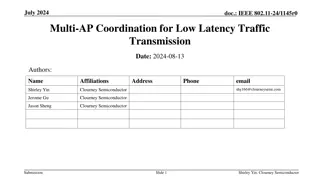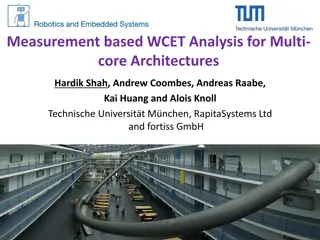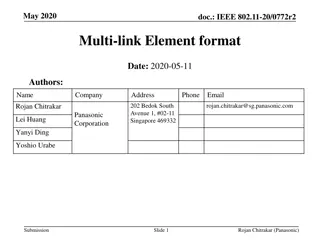Understanding Multi-Skill Arithmetics: Insights and Challenges
Delve into the intricacies of multi-skill operations in the webinar presented by Ger Koole, PhD. Explore the advantages and complexities, learn rules of thumb for multi-skill calculations, and understand the trade-offs involved in managing multi-skilled teams efficiently.
Download Presentation

Please find below an Image/Link to download the presentation.
The content on the website is provided AS IS for your information and personal use only. It may not be sold, licensed, or shared on other websites without obtaining consent from the author. Download presentation by click this link. If you encounter any issues during the download, it is possible that the publisher has removed the file from their server.
E N D
Presentation Transcript
Webinar Multi-skill arithmetics April 16, 2024 Ger Koole, PhD
Goal of this webinar Insight in advantages & complexities of multi-skill operations Rules of thumb of how to make multi-skill calculations But first: who are you? Poll: do you have multi-skilled operations? Poll: which method do you use?
What are multi-skilled operations? Everybody all skills is too expensive to train/impossible Everybody a single skill is not flexible & not efficient Multi-skill: trade-off between nobody & everybody multi-skilled Focus on skill-based routing Harder to manage and to plan optimally
What makes multi-skill planning difficult? Single skill: 1 number per interval N skills: potentially 2N-1 skill groups and thus 2N-1 numbers For example, 3 skills: sales regular (R), sales premium (P) , admin (A) Possible skill groups: R, P, A, RP, RA, PA, RPA Often not all combinations possible: e.g., R, RP, A, RA, RPA No simple way to predict performance No formula as for single-skill case (Erlang) Only (crude) approximations Simulations only accurate but slow option Result: optimization difficult
The objective Upper and lower bound: You can never do better than fully multi-skilled You can never do worse than fully single-skilled But: multi-skilled agents cost more Trade-off between cheap single-skilled agents and efficient multi- skilled agents per agent hour agents hours av. costs total costs multi-skill % multi-skill % multi-skill %
How much multi-skilledness? 20% is based on extensive experiments, but can be different depending on situation Curve is flat thus % does not need to be very precise total costs multi-skill %
Example patience=5min FC=5/min 18 84%/20s 85%/20s AHT=3min 39 FC=4/min AHT=5min 23 81%/20s 85%/20s patience=5min 13 80%/20s 8 82%/20s 18
Robustness Forecasts are always wrong and sometimes really wrong FC=4.5/min 13 83%/20s 18 92%/20s AHT=3min FC=4.4/min AHT=5min 8 75%/20s 23 18 67%/20s How can we make the SL even more balanced? Better routing More multi-skilled agents
The role of routing and intra-day management Bad routing can make the situation worse than single-skill Routing is most of the time static Not adapted to the current situation Requires real-time management (RTM) Makes the situation worse RTM: more agents for skill 2 Multi-skilled agents: priority to 2 13 13 80%/20s 80%/20s 6 8 77%/20s 20 78%/20s 18
Evaluation SL of SBR is always lower than fully multi-skilled add 1 agent Assuming AHTs stay the same For robustness (errors) add 10% more 12 87%/20s 12 87%/20s 16 Shrinkage should be added Long-term: additional flexibility for capacity fluctuations >2 skills: Make sure all skills are connected Better many agents with few skills than few with many
Interested in CCmath tooling? Interested in a demo of one of our products? Contact Jesper at jesper@ccmath.com Advice on how to use one of our tools or other WFM questions? Book a free 1-hour slot with Bas and/or Ger Contact us at bas@ccmath.com or ger@ccmath.com Next webinar: May 28 Thanks for your attention!



